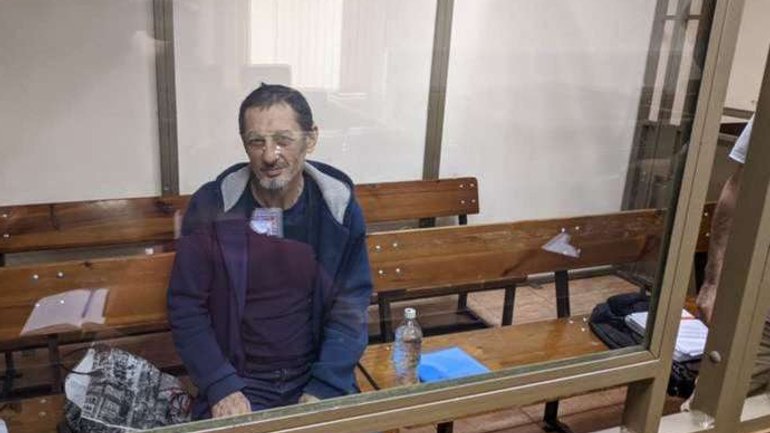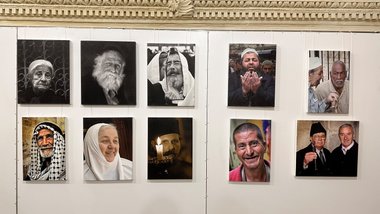Russians took away the Quran from Crimean political prisoner Ruslan Mesutov

This is reported by the human rights association "Crimean Solidarity", according to ZMINA.
According to the human rights association "Crimean Solidarity", the lawyer said that after being transferred to the prison, the prisoner's sacred Muslim book, the Quran, was confiscated.
"They took away the Quran in Arabic from Mesutov so that an expert could see that it was a "normal Quran" and not an "extremist" one. Since then, he has not been able to get it back since November, which greatly oppresses him," said Bilenko.
"Crimean Solidarity" also reports that since November 2022, the Crimean Tatar has had problems with food because Russian authorities began giving him pork as part of the regular ration, which he does not eat due to his religious beliefs. Mesutov wrote an appeal to the prison administration, but the food problem has not been resolved yet.
The political prisoner is in the same cell as another Crimean Muslim political prisoner, Lenur Seydametov.
Recently, the ZMINA Human Rights Center and PEN Ukraine called on concerned citizens to write letters of support to Kremlin hostages.
On February 14, 2003, in a closed court session, the Supreme Court of the Russian Federation declared the Islamic political party "Hizb ut-Tahrir" a terrorist organization. This religious organization operates legally in Ukraine, including in the temporarily occupied Autonomous Republic of Crimea. Russia, contrary to international humanitarian law, uses its criminal law in Crimea.
As known, the activists of this religious organization published a newspaper and were able to openly speak in the media and hold public events. According to human rights activists, the members of the organization are persecuted not for preparing a state coup and terrorism, but for public actions against political repression in Crimea, systematic criticism of the Russian authorities and mass disloyalty among Crimean Tatars in response to the events of 2014.
Human rights activists believe that the decision of the Russian Supreme Court was made unjustifiably, with a violation of transparency and equality of parties, since only the prosecution side, namely the FSB, participated in a closed trial. Representatives of the organization did not have the opportunity to present their position in the case.
In February 2014, Russia launched an illegal military operation to annex the Ukrainian Crimean Peninsula.
Before his arrest, Ruslan Mesutov was one of the founders of the Muslim religious community in Alushta and worked as a guard in a mosque. He also engaged in public activities, organized Muslim holidays, helped with funeral matters, and conducted prayers.
Russian law enforcement officers arrested the man on June 10, 2019, along with other Crimean Tatars, Ruslan Nagayev and Eldar Kantimirov, in the temporarily occupied village of Maly Mayak, and in the village of Izobilne, Lenur Khalilov, the head of the local religious community "Alushta."
Occupation investigators charged Mesutov with violating Part 1 of Article 205.5 of the Criminal Code of the Russian Federation ("Organization of the activities of a terrorist organization"), which provides for punishment of imprisonment for a term of 15 to 20 years, and even Part 1 of Article 30 and Article 278 of the Criminal Code of the Russian Federation ("Preparation for a violent seizure of power by an organized group by prior conspiracy"), which provides for up to ten years of imprisonment.
The arrest of the member of the religious community "Alushta," Ruslan Mesutov, took place two weeks before the court hearing, where the suit of "Alushta" regarding the illegal "Council of Ministers" in the person of the illegal "Ministry of Property of the Republic of Crimea" was to be considered.
The religious community of "Alushta" considers the persecution of Ruslan Mesutov and other members of the community to be a violation of their rights and freedoms, and the charges against them to be unfounded.
“ The exchange of prisoners between Ukraine and Russia is an important step towards reducing the number of human casualties in this protracted conflict," said Mark Berendt, director of Freedom House programs in Europe and Eurasia.
According to the latest data from Ukrainian Ombudsman Dmytro Lubinets, Russia is illegally holding 180 Crimean political prisoners, including 116 Crimean Tatars.
According to the human rights organization "Crimea SOS," at least 35% of the verdicts against the victims of politically motivated criminal persecution in Crimea were handed down after the start of the full-scale invasion. These are mostly people who are accused of alleged involvement with the Islamic political organization "Hizb ut-Tahrir" or the voluntary Crimean Tatar battalion named after Noman Chelibidzhikhan.
"Crimea SOS" points out that the total term for victims of politically motivated persecution in Crimea since the start of the full-scale invasion is 699 years and 9 months.
The human rights organization emphasizes that the ignoring of war crimes by Russian occupiers has led to a deterioration in the human rights situation in occupied Crimea. The lack of reaction from the international community to the occupation of Crimea and the subsequent crimes of the occupiers has made it easier for Russia to turn the peninsula into a springboard for an invasion of mainland Ukraine a year ago.
As is known, the human rights community in Ukraine is convinced that the de-occupation of Crimea will put an end to systematic gross violations of human rights on the peninsula by the Russian Federation. To achieve this, they call on countries to support Ukraine by timely supplying it with weapons and military equipment in sufficient quantities.










